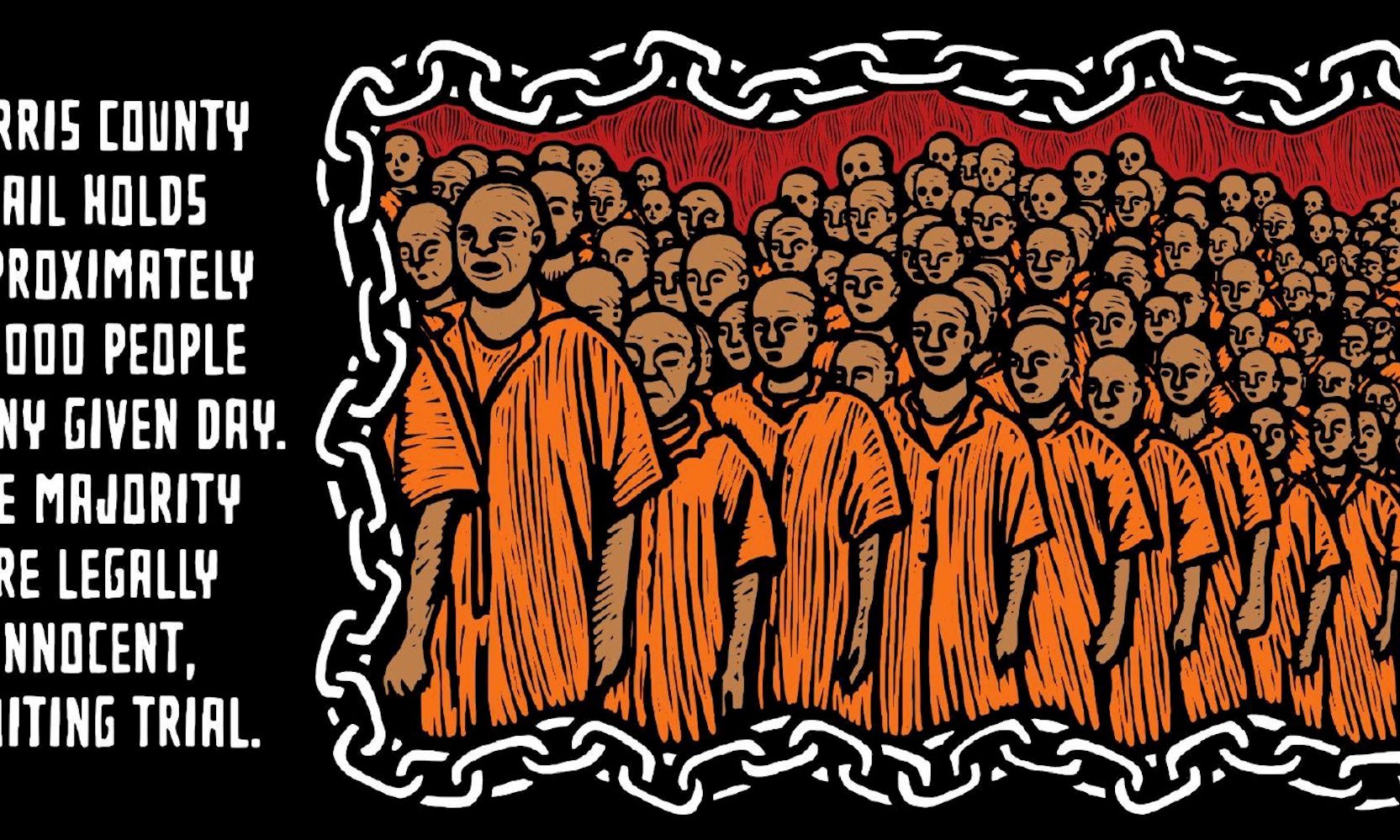A billboard designed by the Houston-based artist Kill Joy for Art at a Time Like This and Save Art Space's 8×5 Houston Courtesy the artist, Art at a Time Like This and Save Art Space
An exhibition of artist-designed billboards in Texas was allegedly censored this week after several advertising agencies declined to support the project, according to the two public art non-profit organisations behind the show.
The organisations Art at a Time Like This and Save Art Space allege that the outdoor advertising firms Clear Channel Outdoor and Outfront Media rejected the exhibition 8×5 Houston, which was to feature works addressing mass incarceration, immigration and prison reform by artists like Mel Chin, Trenton Doyle Hancock and others.
Most of the works in the exhibition dealt specifically with issues related to the region, such as a work by the previously incarcerated artist Jared Owens that states “Exposure to Excessive Heat is Torture!”, protesting the deaths of prisoners from heart-related conditions linked to heat exhaustion amid heatwaves in Texas.
Art at a Time Like This, which was co-founded by the curators Barbara Pollack and Anne Verhallen, have realised several similar public art interventions dealing with the prison industrial complex since the 8×5 billboard art initiative was launched in 2020. The last iteration of the project, 8×5 Miami, featured works by Glenn Kaino, Dread Scott and others that were shown across billboards and roving trucks during Miami Art Week in 2022.
“Each time we’ve done this project, we’ve had to jump through some hoops, and have worked with the artists to redesign their works so that disclaimers can be added at the bottom to make clear who paid for this,” Pollack tells The Art Newspaper. “This time, we were told that most of the artworks had been approved but we never received a contract. Later, the dates were moved back. Then we were told that it wasn’t moving forward, and were not given a reason.”
A billboard designed by the Houston-based artist Rebo Rebo for Art at a Time Like This and Save Art Space's 8×5 Houston Courtesy the artist, Art at a Time Like This and Save Art Space
The initial rejection of the project came from Clear Channel Outdoor, according to Pollack, after which the organisations contacted other billboard companies operating in Houston.
“All of them said that the political climate wasn’t right for this, or something to that effect,” Pollack says. “I don’t think we have a legal case, but it’s interesting how all the billboards in this area of Texas were closed out to us at the last minute.” Subsequent attempts to salvage the project by working with advertising company Outfront Media were unsuccessful.
Travis Rix, the co-founder and director of Save Art Space, which has organised similar civic-minded projects since 2015, adds that the artworks in this exhibition were “no more controversial or political than what’s there out in the world”, but it was the first time that the organisation had attempted to work in Texas.
“We had weeks of negotiations and it seemed like [Clear Channel Outdoor] was receptive, then their decision came at the last second,” Rix says. “Normally we work together with the companies and the artists to make it work—to find a middle ground. This time, that wasn’t the case.”
The organisations allege that representatives for Clear Channel Outdoor were sent a batch of images with sponsorship information included in each. The agency then asked to be provided sources for some of the claims made in the artworks, such as an artwork by the Houston-based artist Rebo Rebo stating that Texas has the highest rate of incarcerated children in the US.
“It’s a conservative market, and a prison reform show doesn’t go well with conservative politics,” Rix says.
Although there’s a slim chance of legal recourse, the organisations hope the project will be realised through other media and perhaps exhibited on roving trucks or an institution in the region. Rix adds that these decisions often “come down to discretion”, rather than existing company policies.
“These companies don’t want to be sued, canceled or called out for putting up a billboard,” Rix says. “There’s no clear regulations, which is unfortunate because then we would actually have something to fight against.”
Clear Channel Outdoor and Outfront Media had not responded to The Art Newspaper’s requests for comment by the time this article was published.

